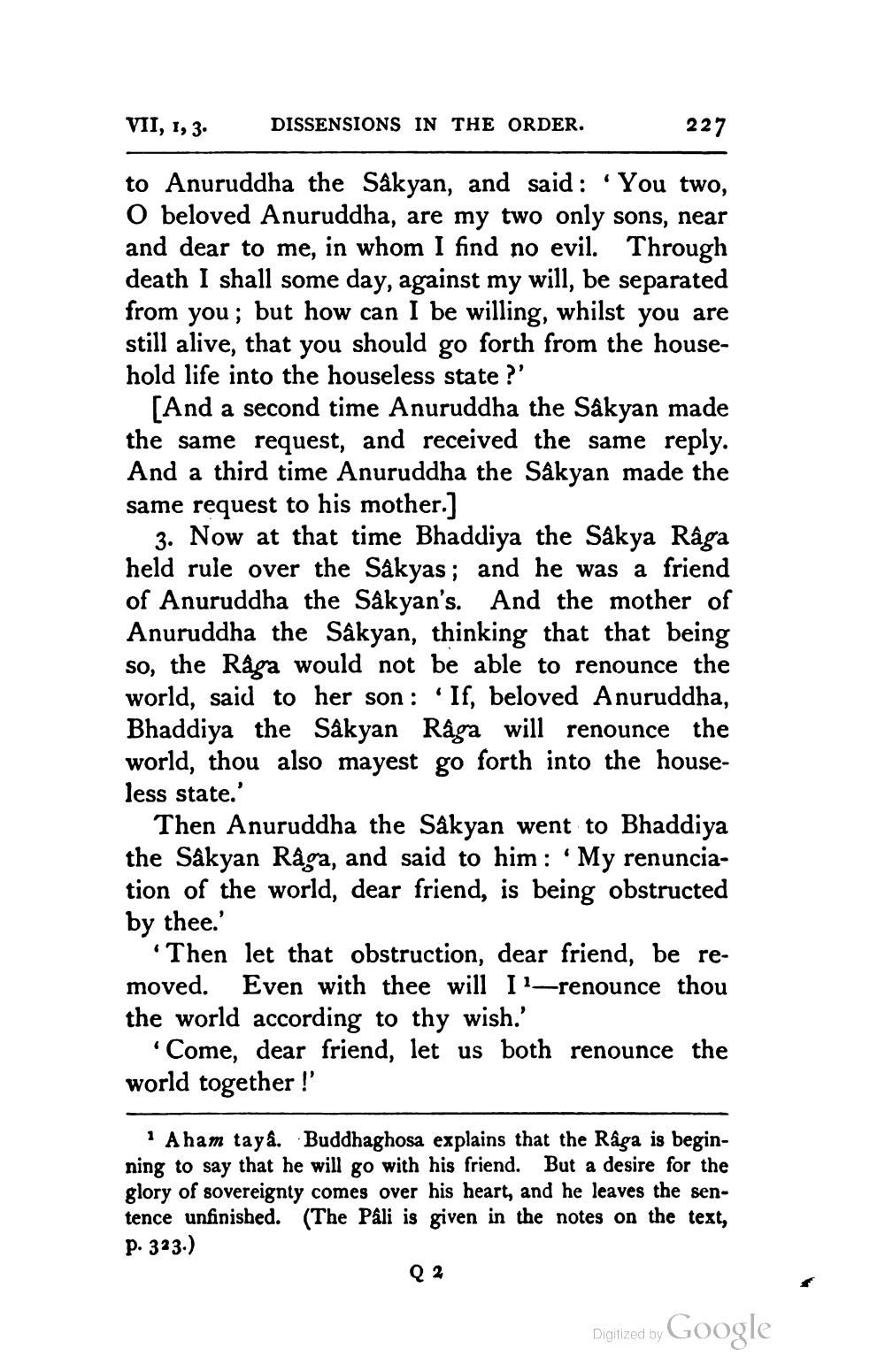________________
227
VII, 1, 3.
to Anuruddha the Sâkyan, and said: 'You two, O beloved Anuruddha, are my two only sons, near and dear to me, in whom I find no evil. Through death I shall some day, against my will, be separated from you; but how can I be willing, whilst you are still alive, that you should go forth from the household life into the houseless state?'
DISSENSIONS IN THE ORDER.
[And a second time Anuruddha the Sâkyan made the same request, and received the same reply. And a third time Anuruddha the Sâkyan made the same request to his mother.]
3. Now at that time Bhaddiya the Sâkya Râga held rule over the Sâkyas; and he was a friend of Anuruddha the Sâkyan's. And the mother of Anuruddha the Sâkyan, thinking that that being so, the Raga would not be able to renounce the world, said to her son: 'If, beloved Anuruddha, Bhaddiya the Sâkyan Râga will renounce the world, thou also mayest go forth into the houseless state.'
6
Then Anuruddha the Sâkyan went to Bhaddiya the Sâkyan Râga, and said to him: My renunciation of the world, dear friend, is being obstructed by thee.'
'Then let that obstruction, dear friend, be removed. Even with thee will I-renounce thou the world according to thy wish.'
'Come, dear friend, let us both renounce the world together!'
1 Aham taya. Buddhaghosa explains that the Râga is beginning to say that he will go with his friend. But a desire for the glory of sovereignty comes over his heart, and he leaves the sentence unfinished. (The Pâli is given in the notes on the text, p. 323.)
Q 2
Digitized by Google




